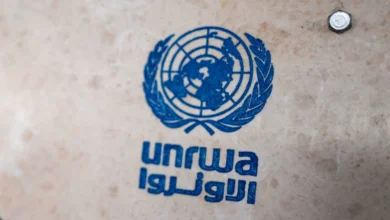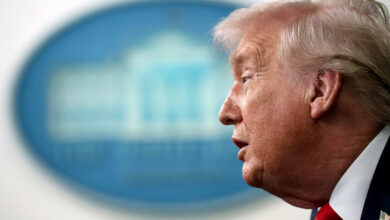Brushing aside high-level UN appeals for cooperation to halt murder and violence against gays and lesbians around the globe, Muslim and Arab countries on Wednesday stalked out of a Human Rights Council panel to tackle the issue.
Speaking before the walkout for the 57-nation Organization of Islamic Cooperation (OIC), Pakistan described homosexuality as "licentious behavior" while African group leader Senegal said it was not covered by global human rights accords.
Nigeria — where gay rights groups say there have been many attacks on male and female homosexuals — declared none of its citizens was at risk of violence because of sexual orientation or gender identity before it too left the chamber.
And Mauritania, for the Arab group, all of whose members are also in the OIC, said attempts to impose "the controversial topic of sexual orientation" would undermine discussion in the council of all genuine human rights problems.
The walkout, which diplomats said not all countries in the Islamic and African groups joined, was the first by three major blocs in the 47-member council, which has been dominated until recently by a caucus of developing countries and their allies.
It came after United Nations Secretary-General Ban Ki-moon and Human Rights High Commissioner Navi Pillay told the session that gays and lesbians should be protected by all governments.
"We see a pattern of violence and discrimination directed at people just because they are gay, lesbian, bisexual or transgender," Ban said in a video message to the panel, chaired by African group dissenter South Africa.
"This is a monumental tragedy for those affected — and a stain on our collective conscience. It is also a violation of international law. You, as members of the Human Rights Council, must respond," the UN chief declared.
US, South Africa pushed
Islamic and most African countries have long kept discussion of what the UN dubs "sexual orientation and gender identity" out of the council but a strong drive by the United States and South Africa brought it onto the agenda last June.
With a developing country bloc in the body eroding, Latin American countries like Argentina, Brazil and Uruguay joined in to push through a narrow vote to mandate Wednesday's panel and the High Commissioner's report.
Pillay, once a South African high court judge, told the session her life under apartheid had taught her that "ignorance and bigotry" could only be overcome by education and frank discussion among people with different views.
In her report she detailed the often fatal abuse — she labeled it "homophobia" — homosexuals faced around the globe ranging from mob killing for males, multiple rape of lesbians "to cure them" and torture in public and private jails.
The report said 76 countries among the UN's 192 members had laws criminalizing homosexual behavior. At least five — in particular Iran — provide for the death penalty while efforts are under way in Uganda to introduce the same punishment.
"I know some will resist what we are saying," said Pillay, who earlier this week was accused by Egypt in the council of promoting homosexuality by pressing on with the report despite the objections of Islamic countries.
In a clear reference to Islamic and African countries, she said some states would argue that homosexuality or bisexuality "conflict with local cultural or traditional values, or with religious teachings, or run counter to public opinion."
But while they were free to hold their opinions, she declared, "That is as far as it goes. The balance between tradition and culture, on the one hand, and universal human rights on the other, must be struck in favor of rights."




